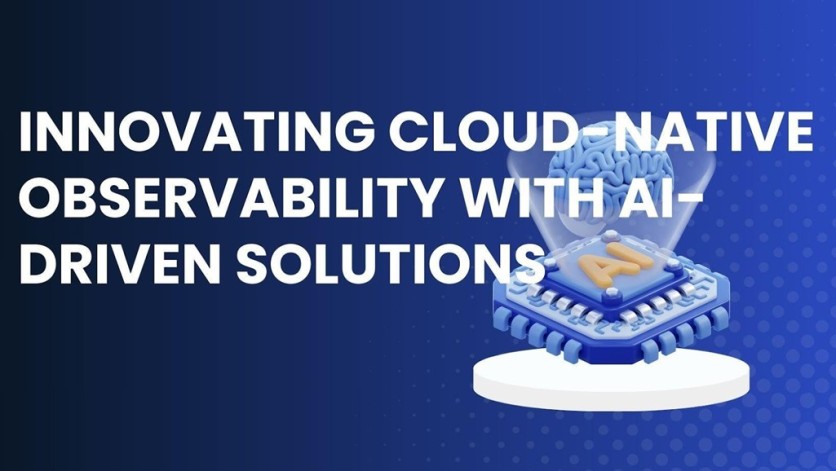
In the fast-evolving world of cloud-native networks, modern infrastructure designs have shifted toward microservices and containerized environments. These systems are powerful, but they also introduce significant challenges in managing and monitoring the complex web of data generated. In his article, Sai Kalyan Reddy Pentaparthi presents an innovative framework for addressing these challenges by integrating open-source observability standards with artificial intelligence (AI) techniques.
A New Era of Cloud-Native Observability
Cloud-native networks, composed of ephemeral microservices, create large volumes of telemetry data, such as metrics, logs, traces, and events. Traditional monitoring approaches struggle to manage this scale, often increasing incident resolution times. The framework introduced by Pentaparthi elevates observability by combining OpenTelemetry, a standard for data collection, with powerful storage solutions like CortexDB and Loki, alongside AI-powered analysis through Generative AI (GenAI) and Retrieval-Augmented Generation (RAG).
Building a Strong Telemetry Foundation
At the core of this unified observability framework is OpenTelemetry, which standardizes the collection of telemetry data across microservices. By incorporating event data alongside traditional metrics, logs, and traces, the framework ensures more efficient data correlation and reduces the time spent manually sifting through disparate signals. OpenTelemetry's adoption has grown rapidly, and its extension to include event data offers a more comprehensive approach to capturing operational insights, making the system more reliable and efficient for dynamic cloud environments.
Scalable Storage Solutions for Big Data
Handling the massive amounts of data generated by cloud-native networks requires specialized storage solutions. CortexDB and Loki provide scalable, high-performance storage that dramatically reduces costs compared to traditional systems. CortexDB's efficient data compression and write throughput capabilities allow it to store millions of active time-series metrics, while Loki's index-optimized log storage reduces storage requirements by up to 75%. Together, these solutions ensure fast query performance and cost-effective data retention, even as data volumes continue to grow.
AI-Powered Observability: From Data to Actionable Insights
The next major leap in this framework comes from the integration of AI-powered analysis. Generative AI transforms raw telemetry into actionable intelligence by analyzing patterns, detecting anomalies, and offering insights into the underlying causes of issues. Through automated analysis and natural language processing, GenAI models reduce the time required to detect and resolve incidents. By recognizing patterns in telemetry data, these models also improve the accuracy of anomaly detection and proactively identify issues before they escalate.
Enhancing Context with Retrieval-Augmented Generation (RAG)
One of the most unique innovations in this framework is the use of Retrieval-Augmented Generation (RAG) to enhance the context of AI-generated insights. RAG combines historical operational data and domain knowledge to improve the accuracy of AI analysis. This approach reduces the chance of errors, or "hallucinations," that typically occur when models lack relevant context. By integrating historical data and architectural information, RAG improves the system's ability to identify recurring incidents and accurately predict their impact, which in turn accelerates incident resolution and enhances operational efficiency.
Automated Response for Faster Remediation
Alongside intelligent alerting, the framework incorporates automated remediation capabilities. By leveraging AI-driven insights, the system can automatically diagnose issues and suggest resolution steps. For well-understood problems, it can even implement predefined remediation actions autonomously. This self-healing capability greatly reduces the time needed to resolve incidents and minimizes the need for manual intervention.
The Path Toward Proactive Operational Intelligence
Pentaparthi's unified observability framework does more than just monitor systems—it transforms the way operations teams interact with their cloud-native environments. By combining standardized data collection, scalable storage solutions, and AI-powered analysis, the framework shifts observability from a reactive troubleshooting tool to a proactive intelligence platform. Organizations that adopt this innovative approach report significant reductions in mean time to detection and resolution, fewer false positives, and improved resource utilization, all of which contribute to enhanced service reliability and operational efficiency.
In conclusion, Sai Kalyan Reddy Pentaparthi's vision for AI-enhanced observability in cloud-native networks provides a forward-thinking solution to the challenges posed by modern distributed systems. By leveraging cutting-edge technologies like OpenTelemetry, CortexDB, Loki, GenAI, and RAG, this framework represents a transformative step toward more efficient, intelligent, and scalable network management. As cloud-native architectures continue to evolve, these innovations offer a roadmap for building more reliable and resilient systems.
ⓒ 2025 TECHTIMES.com All rights reserved. Do not reproduce without permission.
![[RUMOR] New Tesla Model Y Juniper Refresh Leak Claim to be Coming From Factory](https://d.techtimes.com/en/full/449880/rumor-new-tesla-model-y-juniper-refresh-leak-claim-coming-factory.jpg?w=184&h=103&f=b60854a6f079ac1b47b982f40e064409)



